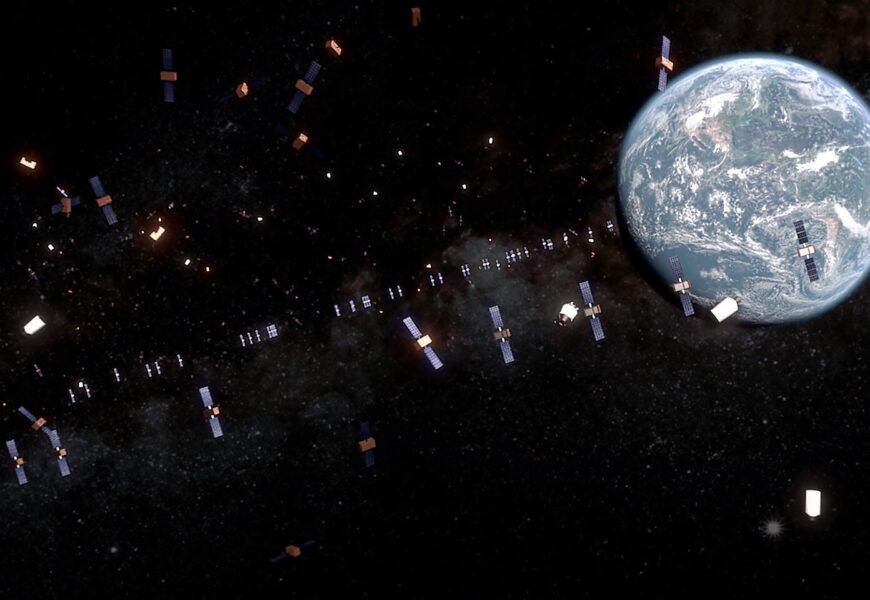Technological expertise, especially in the context of humanity’s expanding presence in space, is increasingly becoming a critical factor in global competitiveness and national security. This shift brings forth new possibilities to incorporate AI, along with a new set of associated risks.
The integration of artificial intelligence is pivotal in democratizing access to space exploration and research, making it accessible to a broader audience beyond governmental space agencies. This is evident in the significant number of commercially funded and operated space launches in recent years. With the adoption of AI-driven autonomous flight safety systems, Space Launch Delta 45 has streamlined operations, reducing the need for mission control chairs and consolidating about a dozen facilities per launch. SpaceX utilizes an AI autopilot system to facilitate autonomous operations for its Falcon 9 spacecraft, including tasks like docking with the International Space Station.
Present-day AI capabilities offer a myriad of advantages that were beyond the reach of early space pioneers. AI can actively monitor space debris and satellite trajectories in real-time, assessing collision risks and preemptively suggesting or executing maneuvers to prevent mishaps. This not only ensures satellite safety and longevity but also minimizes the human resources required for complex space missions. Additionally, AI aids in simulating and testing satellite components, diminishing the reliance on costly physical prototypes.
Furthermore, AI optimizes satellite communications by enhancing network efficiency and resource allocation. By swiftly analyzing vast amounts of satellite imagery and data, AI algorithms contribute to improved satellite operations. The insights derived from AI-driven analysis have far-reaching implications, benefiting various terrestrial applications such as weather forecasting, agriculture, urban planning, and environmental monitoring. AI also plays a crucial role in predicting and tracking the trajectory of space debris, enhancing space situational awareness.
The utilization of AI significantly lowers the barriers to entry for space exploration and utilization, enabling a more diverse range of participants, from startups and educational institutions to nations that previously lacked access to space.
Expanded Participation, Elevated Risks
While the democratization of space fosters mission efficiency and wider engagement in the space sector, it introduces intricate cybersecurity challenges for space-based assets critical to national security. This underscores the necessity for integrating new technologies alongside existing investments to address emerging threats effectively.
AI emerges as a key player in this scenario, enabling advancements in spaceflight, satellite design, and communications. However, each benefit brought by AI in these domains is accompanied by the risk of potential attacks, infiltrations, and compromises. The capacity of AI to generate sophisticated malware capable of circumventing existing security measures poses a significant challenge. Adversaries can leverage AI to train malicious software, creating a cycle of evolving cyber threats and defense mechanisms. The asymmetric nature of cyber-attacks underscores the constant vigilance required from defenders to counteract threats effectively.
The integration of AI technologies extends to the creation of deceptive content, including fictitious news, disinformation, and deep fake technology for fraudulent purposes. This evolution in cyber threats, coupled with the rise of generative AI technology, emphasizes the critical importance of robust cybersecurity measures across all technological domains.
For each benefit AI enables in spaceflight and satellite design and communications, there is a converse risk of attack, infiltration, and compromise.
Despite the potential risks introduced by AI, it also offers solutions to streamline complex security processes. By leveraging AI, security professionals can manage large volumes of data effectively, enhancing data utility and accuracy. This advantage is particularly crucial in domains like space domain awareness and constellation management, where the ability to respond swiftly to prevent collisions becomes increasingly vital as orbital congestion grows.
Security in the New Frontier
As organizations navigate the evolving landscape of cybersecurity challenges, infrastructure innovations, and workforce efficiencies, the effective utilization of AI in cybersecurity strategies, especially in the realm of space and sensor technologies, becomes paramount. This strategic approach not only safeguards operations but also provides a competitive edge in the modern space economy.
The convergence of AI, cybersecurity, space exploration, satellites, and sensors presents opportunities for resilience, innovation, and security. However, it also exposes vulnerabilities that adversaries can exploit without significant infrastructure investments. This underscores the importance of maintaining vigilance, adaptability, and a commitment to thoughtful AI regulation.
To uphold its strategic advantage, the United States, in collaboration with businesses operating in the contemporary space economy and national defense sectors, must carefully balance the efficiencies gained through AI implementation in satellite design, launch, and operations with the heightened security risks posed by malicious actors. While substantial cost savings can be realized through AI implementation, there is a parallel need to enhance satellite security and defense against potential attacks. Establishing secure data sharing mechanisms to address vulnerabilities in the supply chain is crucial, emphasizing the importance of fostering cooperation between corporations and government entities. Staying abreast of the latest AI developments, understanding their cybersecurity implications, and anticipating technological advancements are essential for securing a prosperous future in this dynamic environment.
Paul Maguire, the CEO and Co-founder of Knowmadics, brings a wealth of experience in software development focusing on security requirements for terrestrial and space-based assets. With a background as a former Naval Intelligence Officer specializing in space collections and a civilian program manager for the Air Force Space and Reconnaissance Office, Maguire has been involved in designing future national space systems. His contributions extend to co-authoring papers on Multi-Spectral Imagery and Imagery Exploitation.









